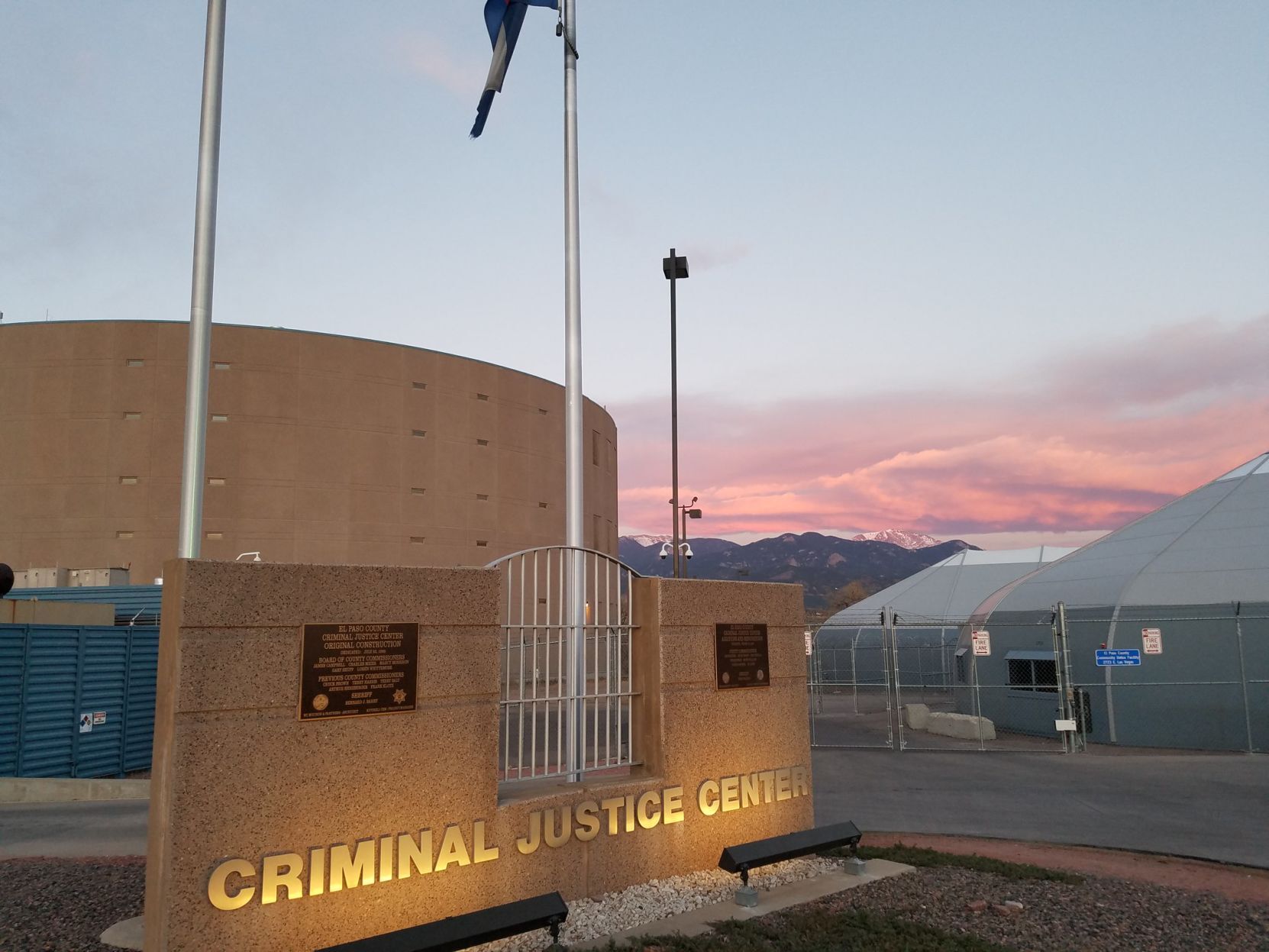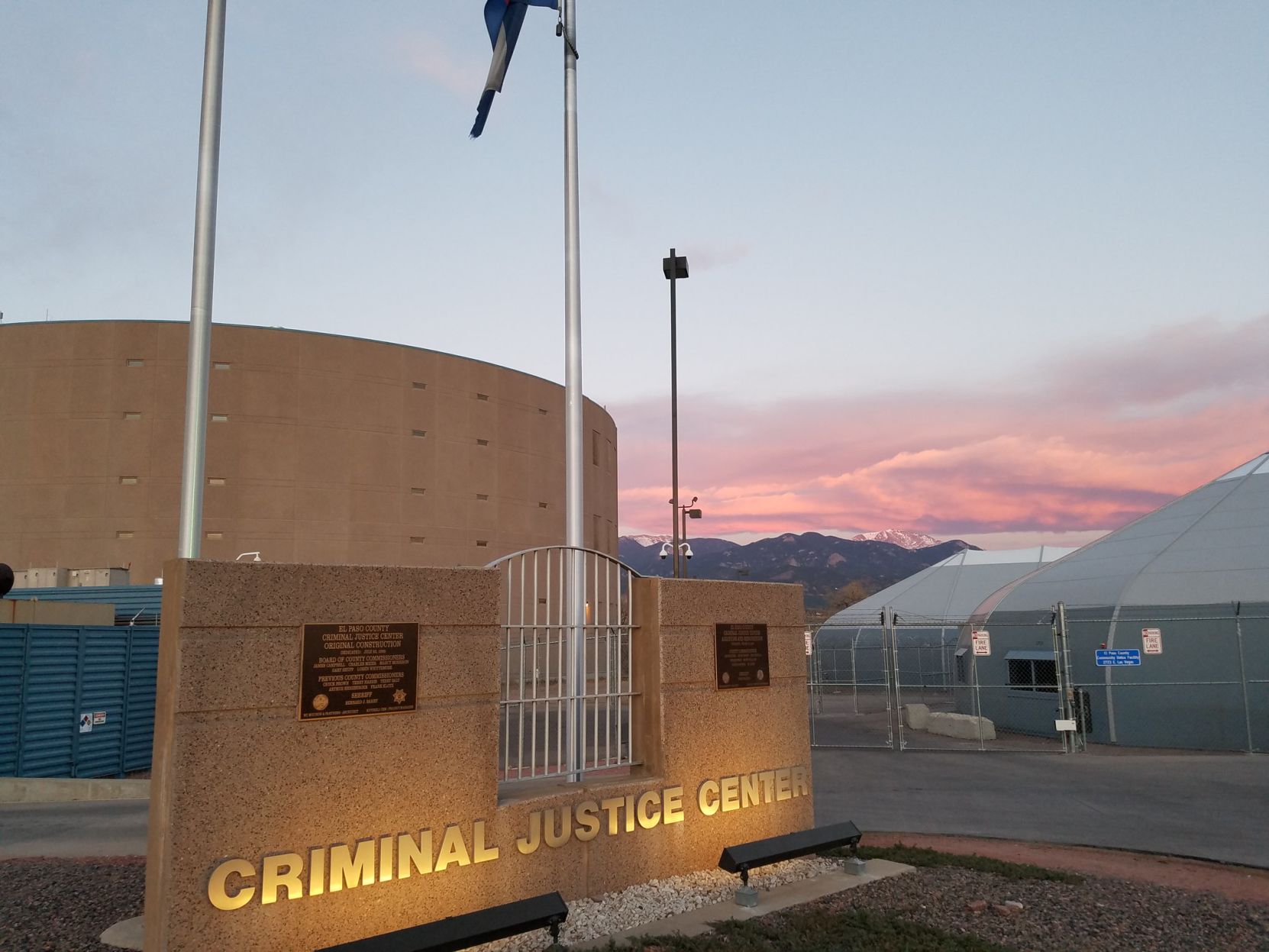State Supreme Court rules El Paso sheriff can be held liable for man’s prolonged detention

Although Colorado law allows pretrial detainees to sue jail operators for injuries “due to negligence,” the state Supreme Court ruled on Monday that the law also permits the sheriff of El Paso County to be held liable for intentionally detaining a man for months beyond the date he posted bond.
Writing for the court, Justice Richard L. Gabriel clarified that the logical interpretation of the law allows for detainees to assert violations of their rights if jail operators act, at a minimum, with negligence. The ruling rebuffed the arguments of Sheriff Bill Elder and the state’s Court of Appeals, which maintained that negligence meant negligence, and nothing else.
“As a result, defendants sued for injuries resulting from the operation of a jail could successfully defend against liability by claiming that they did not accidentally cause the plaintiff injury but rather they meant to harm the plaintiff,” wrote Gabriel. “In our view, such a result would be absurd.”
The ACLU of Colorado and Holland & Hart attorney Stephen G. Masciocchi filed suit on behalf of Saul Cisneros for his prolonged, purposeful detention at the request of immigration authorities.
“I think all of us at the ACLU were gratified that the Colorado Supreme Court rejected the sheriff’s position, which was that he couldn’t be sued because he didn’t detain our client for four months by accident, he did it on purpose,” said Mark Silverstein, the legal director of the ACLU of Colorado.
The lawsuit arose after Cisneros entered the El Paso County Jail in November 2017. Although Cisneros’ daughter posted bond four days later, the jail held Cisneros to comply with a 48-hour detention request from U.S. Immigration and Customs Enforcement.
For reasons that were unclear on appeal, the jail held Cisneros well beyond the requested window, amounting to nearly four months.
Cisneros sued Elder for false imprisonment, alleging it was the sheriff’s policy to refuse to release detainees who had posted bond, completed their sentence or otherwise resolved their criminal case if ICE had issued immigration detainers and warrants not signed by judges. Cisneros’ attorneys claimed Elder had no power to hold detainees solely for alleged immigration violations.
“At the time of the false imprisonment, plaintiff was not incarcerated pursuant to a conviction for a crime. He was not awaiting sentencing. He was entitled to be released,” the lawsuit read.
El Paso County District Court Judge Eric Bentley refused to dismiss the complaint, agreeing with Cisneros that the state’s governmental immunity law that allows lawsuits for injuries “due to negligence” also encompasses the sheriff’s intentional practices.
The Court of Appeals subsequently reversed the decision in November 2020, after a three-judge panel ruled 2-1 that, in the words of Judge Diana Terry, “‘negligence’ means negligence.”
“It may strike reasonable people the same way as it did the district court, that if liability is waived for negligent conduct, it should also be waived for intentional conduct. But we are bound to apply the law as written,” she added.
Judge David J. Richman dissented. In his view, that literal interpretation was “illogical” because the General Assembly had never intended to hold government officials liable for accidental, but not for intentional, violations of rights.
Under Colorado’s governmental immunity law, people who have been convicted of a crime and are incarcerated may not sue for injuries resulting from the operation of a prison or jail. People who have not yet been convicted, however, may file such lawsuits for injuries due to negligence.
Gabriel, in the Supreme Court’s opinion, acknowledged that while it defied common sense for the legislature to ignore purposeful injuries inflicted on pretrial detainees and only focus on negligent ones, some lawmakers’ statements during the 1994 debate on the law seemed to support Elder’s position.
Overall, Gabriel cited extensively the comments of then-Sen. Dick Mutzebaugh, R-Highlands Ranch, who was one of the sponsors of the proposal to allow pretrial detainees to sue for negligence. Mutzebaugh suggested that detainees needed to allege “at least” negligence in order to hold the government responsible.
“I want to show some negligence on the part of the operation of that facility before (detainees) can recover,” he said at the time. “So, this is to set a minimum kind of standard that someone has to meet before they can pursue their claim against the county or the state.”
Given that history, the law “sets a floor, not a ceiling,” Gabriel concluded. Cisneros’ false imprisonment claims now return to the trial court for further proceedings before Bentley, the district court judge. A spokesperson for the sheriff’s office did not immediately respond to a request for comment.
In a related class-action lawsuit that Cisneros filed against Elder during his detention, Bentley decided the sheriff’s treatment of Cisneros violated the state constitution’s protections against unreasonable seizures and the rights to bail and due process. While the lawsuit was pending, Gov. Jared Polis signed a bill in 2019 that now bars state law enforcement officials from detaining people based solely on ICE warrants without a judge’s signature. The new law rendered that lawsuit moot.
The case is Cisneros v. Elder.













